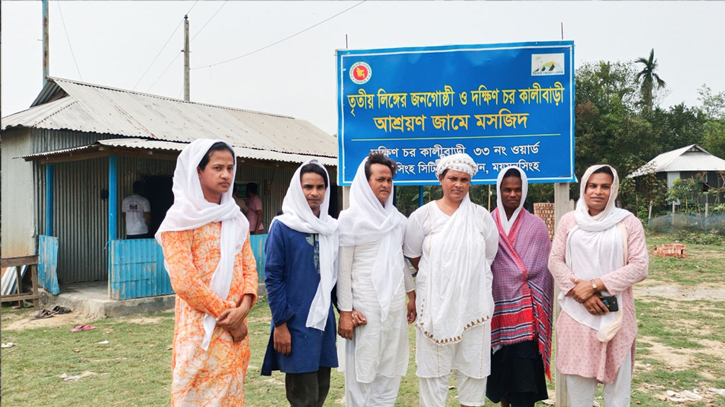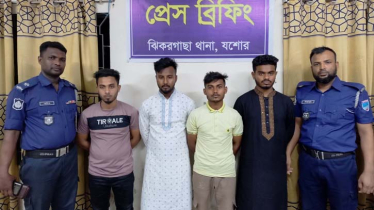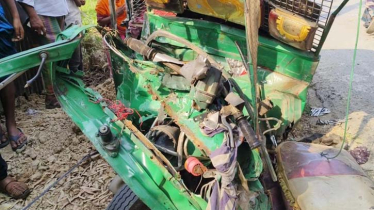
Photo : Collected
In Mymensingh city, this Ramadan marked the opening of a pioneering mosque dedicated to members of the hijra community.
The "Third Gender Community and Dakshin Char Kalibari Ashrayan Mosque," situated on the picturesque banks of the Brahmaputra River, symbolizes a significant stride towards inclusivity in religious spaces.
Spanning an area of 33 decimals, the mosque not only serves the spiritual needs of the local hijra population but has also welcomed Muslims from the broader community.
The initiative, driven by the "Setu Bondhon Hijra Welfare Association," emerged in response to the discrimination and ridicule faced by hijra individuals in traditional mosques.
The derogatory treatment led to a collective decision to establish a dedicated space for worship, supported by a generous land donation and funding facilitated by the Mymensingh Divisional Commissioner, Ommey Salma Tanzia.
The mosque's construction on donated land in Badikandi village was strategically planned to coincide with Ramadan, fostering a sense of community and belonging among the worshippers.
Featuring a modest single-story design with tin walls and a roof, the mosque includes a veranda, tube well, and toilets, ensuring basic amenities for its congregants. Additionally, the installation of three loudspeakers enables the regular call to prayer, further solidifying the mosque's role in the community's daily religious life.
Akhi, a member of the local hijra community, highlighted the transformative impact of the mosque, mentioning, "Throughout our lives, we have heard stories that when hijras die, their bodies are dumped in the river. There was no burial ground. Now, alongside our mosque, there is also a cemetery."
This statement underscores the profound significance of the mosque and adjoining cemetery as symbols of dignity and respect for the hijra community.
Joyita Tanu Hijra, president of the hijra association, recounted the journey towards establishing the mosque, from facing mockery in local mosques to securing the necessary land and funds through the support of the Divisional Commissioner and generous donors.
The appointment of Hafiz Maulana Karimul Islam as the imam signifies the mosque's commitment to providing spiritual guidance and support to all worshippers, including the hijra community.
Abdul Motalib, president of the Mosque Management Committee, expressed the local community's support for the hijra community's endeavors, emphasizing the collaborative spirit in offering prayers and conducting religious activities.
The Divisional Commissioner, Ommey Salma Tanzia, praised the initiative as commendable, highlighting the mosque's role in offering a safe and welcoming space for hijra individuals to practice their faith.
Looking ahead, plans for expanding the mosque complex to include a madrasa, a primary school, and enhanced cemetery facilities are underway.
This ambitious vision reflects a hopeful future for inclusivity and acceptance within religious spaces, not only in Bangladesh but potentially setting a precedent for the world.
Messenger/Fameema








